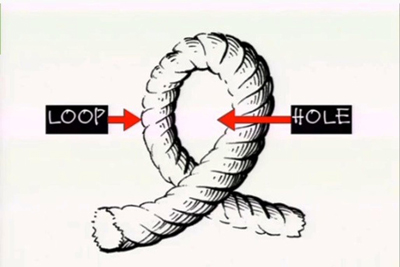
Sometimes it seems easy to guess the origin of a particular word, while others are a bit of a puzzle. For example, let us take the word, “loophole”. Literally, it means a hole in a loop, while technically it stands for a way out to escape a contractual commitment. People in the tight corner always try to find out a loophole in a contract or article about a particular law to avoid problems. But originally, the word meant something else.
Initially, the slit-like openings in castle walls were known as loopholes that were used by archers and later by musketeers, who used to guard the castle. Those slits were the only openings in a seemingly impenetrable wall were these slits. The strategy behind such openings was that it was easy to launch arrows and projectiles from them without having similar objects coming back through the slits. It could also be used by children or small adults to squeeze through and escape. Thus, a loophole is a small opening, a means of escape or a narrow hole in a seemingly airtight law or contract.

It should be mentioned in the context that, the Dutch word “loopen”, meaning “to run”, is still reflected in the English words “lope”and “ leap ”. Another Dutch word “lupen”, meaning “ to watch, peer ”, is also a likely origin of the castle loophole, the word “lupenhole” meaning window hole.

The word loophole in the sense of contractual loophole, allowing evasion, was first used by the poet Andrew Marvell in 1663. Figurative sense of "outlet, means of escape" is from 1660s.